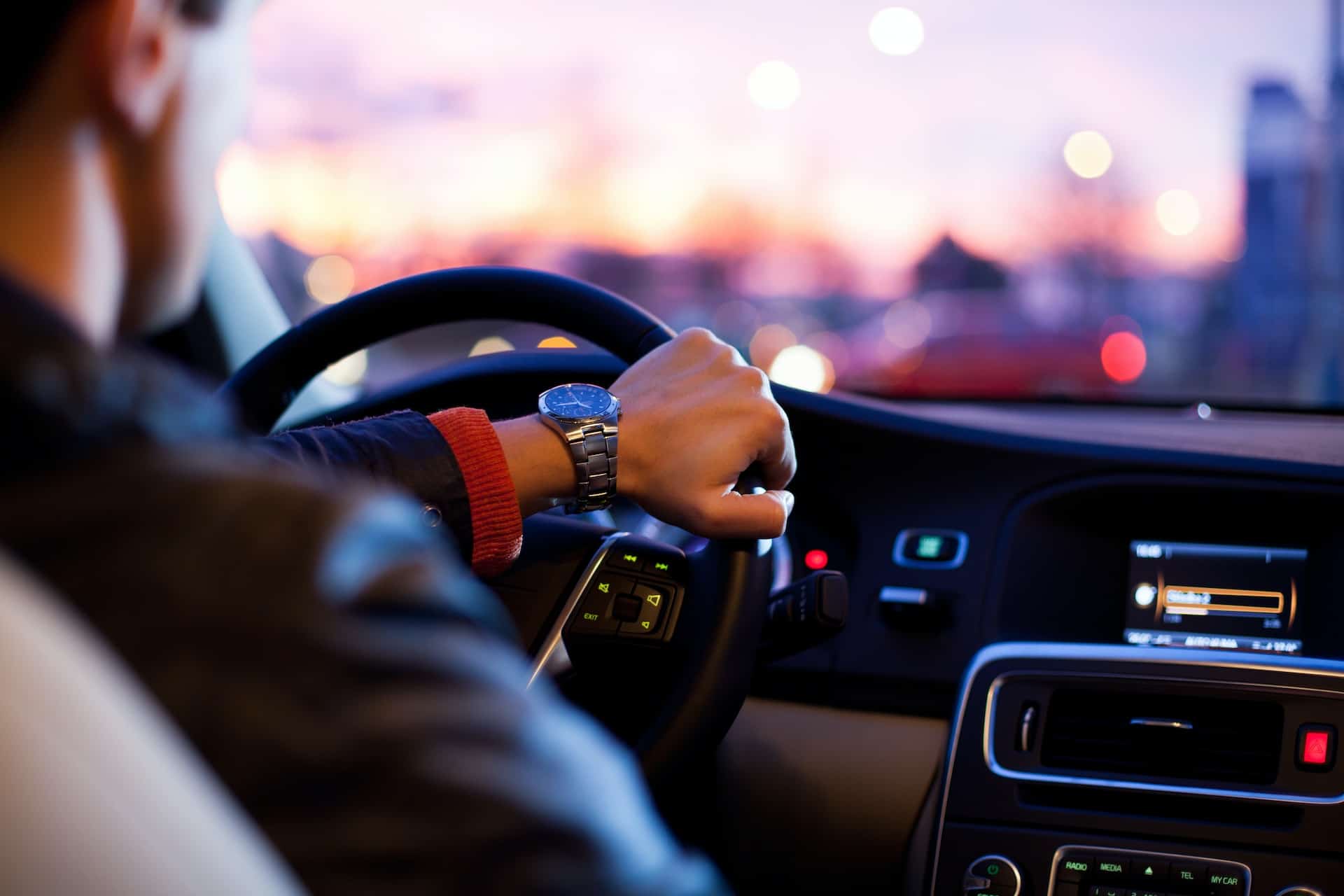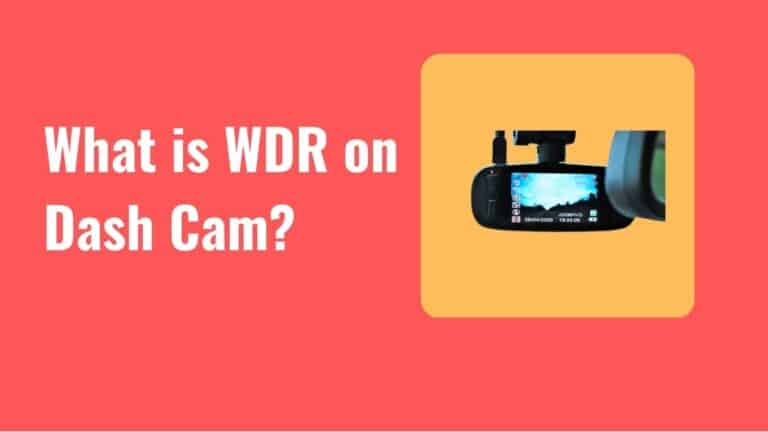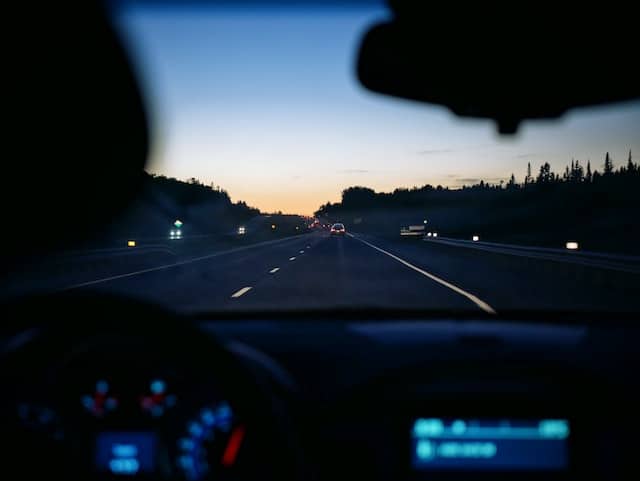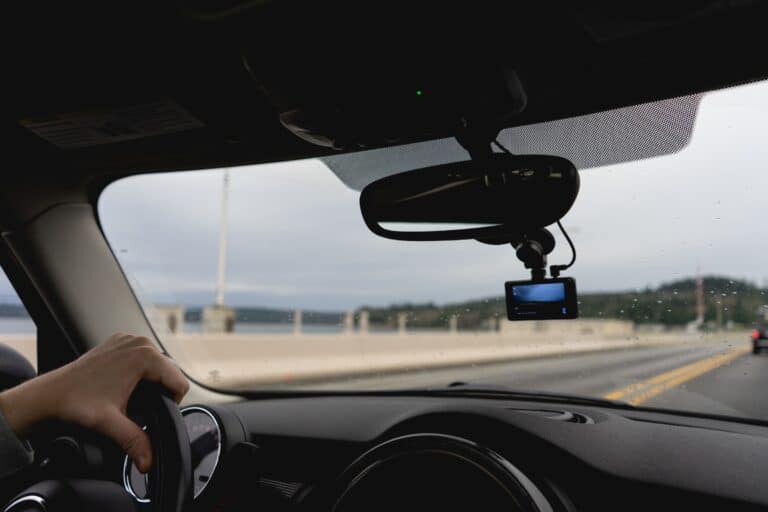Can You Get A Ticket From A Dash Cam?
Are you curious about the legality of using a dash cam and whether it can result in getting a ticket? Well, you’ve come to the right place! In this article, we will delve into the fascinating world of dash cams and explore their role as potential evidence. We’ll also discuss the consequences of using a dash cam and how it can protect your rights and privacy.
So, buckle up and get ready to navigate the legal boundaries of dash cam recordings!
In today’s technology-driven society, dash cams have become increasingly popular among drivers who want an extra layer of protection on the road. But are they legal? The answer may surprise you. Understanding the legality surrounding dash cams is crucial to ensure that you stay on the right side of the law while capturing important footage.
Moreover, knowing how this footage can be used as evidence in court can make all the difference when it comes to disputes or accidents involving other drivers. So, let’s dive deep into these topics and equip you with valuable knowledge about dash cams and their potential impact on receiving tickets!
Disclaimer: This is not legal advice. Contact your legal counsel for information about your state laws.
The Legality of Dash Cams
So, can you actually snag yourself a ticket from your trusty dash cam? Well, the answer to that question depends on where you live and how you use your dash cam.
In many places, using a dash cam is perfectly legal as long as it doesn’t obstruct your view of the road or violate any privacy laws. However, there are some instances where your dash cam footage could potentially lead to a ticket.
One example is if your dash cam captures evidence of you breaking traffic laws such as running a red light or speeding. In this case, law enforcement officers may use the footage as evidence to issue you a ticket.
Additionally, if your dash cam reveals that you were driving recklessly or engaging in dangerous behavior on the road, you could also face penalties based on that evidence.
It’s important to remember that while having a dash cam can provide valuable footage in case of accidents or disputes, it can also work against you if it captures illegal or unsafe activities. So make sure to always drive responsibly and within the confines of the law when using a dash cam.
Understanding the Role of Dash Cam Footage as Evidence
When reviewing footage from a dashboard camera, it can clearly depict the events and serve as valuable evidence in understanding what transpired. Dash cam footage plays a crucial role in determining liability and providing an unbiased account of an incident.
Whether it’s a car accident or a traffic violation, dash cam footage can capture the entire sequence of events, including factors that may not be immediately apparent to eyewitnesses or even the parties involved. This objective perspective is especially important when there are conflicting testimonies or when memory fades over time. By presenting an unfiltered view of the incident, dash cam footage helps ensure fairness and accuracy in legal proceedings.
Not only does dash cam footage provide clarity, but it also offers a level of protection for drivers who follow the rules of the road. In cases where someone else’s negligence causes an accident or violation, having video evidence can help establish innocence and prevent unjust penalties or insurance claims against you. Moreover, knowing that your actions are being recorded may encourage better driving behavior among all road users, reducing the number of accidents and promoting safer roads for everyone. Dash cams have become increasingly popular due to their ability to provide tangible evidence and add an extra layer of security while on the road.
Dash cam footage serves as invaluable evidence by offering an unbiased account of incidents on the road. It helps establish liability accurately, prevents unjust penalties for innocent drivers, encourages responsible driving behavior, and ultimately contributes to safer roads for all.
Read Also: Legal Placement of Dash Cam: Complete Guide for U.S. Drivers
As technology continues to advance and more people adopt dash cams in their vehicles, we can expect this form of evidence to play an even more significant role in legal proceedings involving traffic violations and accidents. So next time you hit the road with your trusty dashboard camera recording every moment, remember that you’re not just capturing memories; you’re also safeguarding yourself from potential unfairness on the streets.
Potential Consequences of Dash Cam Use
Consider the myriad of unintended consequences that arise from utilizing the powerful tool known as a dashboard camera. While dash cams can provide valuable evidence in accidents and disputes, they can also result in potential consequences for the driver.
One such consequence is the possibility of receiving a ticket based on footage captured by the dash cam. In some cases, law enforcement authorities may use dash cam footage as a basis for issuing traffic citations. If your dash cam captures you violating traffic laws, such as running a red light or speeding, it can be used against you as incriminating evidence. This means that even if you weren’t pulled over at the time of the incident, you could still receive a ticket later on based on what was recorded by your own dash cam. It’s important to remember that having a dash cam doesn’t exempt you from following traffic regulations, and any footage showing violations can be used against you.
Another potential consequence of using a dash cam is increased scrutiny from insurance companies. Insurance providers often request access to any available footage after an accident occurs. While this may seem beneficial at first glance, it’s important to note that insurers can use this information to evaluate your driving habits and potentially increase your premiums if they deem you to be a high-risk driver based on what they see in the footage. Therefore, while having a dash cam might help prove your innocence in an accident, it could also lead to higher insurance costs if any questionable behavior is captured on camera.
While dashboard cameras are undoubtedly useful tools for capturing incidents on the road and providing evidence when needed, they come with their fair share of potential consequences. From receiving tickets based on incriminating footage to facing increased scrutiny from insurance companies, drivers should consider these unintended outcomes before incorporating a dash cam into their vehicle. It’s crucial to understand that owning a dash cam doesn’t grant immunity from traffic violations or insurance repercussions – responsible driving remains paramount regardless of whether or not there’s a camera recording your every move.
Protecting Your Rights and Privacy with Dash Cams
Using a dash cam can help safeguard your rights and privacy while on the road. With a dash cam recording your journeys, you have an unbiased witness that can provide crucial evidence in case of accidents or disputes. If you’re involved in a collision or any other incident, the footage from your dash cam can be used to prove your innocence and protect you from false claims. This can save you from potential legal trouble and prevent insurance fraud.
Furthermore, having a dash cam protects your privacy by deterring potential criminals or aggressive individuals. The presence of a visible camera often serves as a deterrent for those who may otherwise engage in dangerous behavior on the road. Knowing that their actions are being recorded makes people think twice before acting recklessly, which creates safer driving conditions for everyone involved.
Additionally, if you encounter any unlawful activity while driving, such as road rage incidents or hit-and-runs, the footage captured by your dash cam can assist law enforcement in identifying the culprits and bringing them to justice.
Using a dash cam is an effective way to protect your rights and privacy while on the road. It provides valuable evidence in case of accidents or disputes and acts as a deterrent against criminal behavior. By investing in a reliable dash cam and utilizing its features responsibly, you can drive with confidence knowing that you have an extra layer of protection on your side.
Navigating the Legal Boundaries of Dash Cam Recordings
Navigating the legal boundaries of dash cam recordings can be a tricky task, but understanding the rules and regulations is essential for responsible usage. When it comes to recording with your dash cam, it’s important to know that laws regarding audio recording vary from state to state.
Some states require all parties involved in a conversation to consent to being recorded, while others only require one party’s consent. It’s crucial to familiarize yourself with the specific laws in your jurisdiction to ensure compliance and avoid any potential legal issues.
Further reading: Do Dash Cams Record Audio? Everything You Need to Know
Additionally, it’s important to respect privacy rights when using a dash cam. While capturing footage on public roads is generally allowed, recording in private spaces or areas where individuals have a reasonable expectation of privacy may violate their rights. This includes private parking lots or driveways.
Being mindful of these boundaries not only protects your own legal standing but also promotes responsible usage of dash cams as a means of enhancing safety on the road without infringing on others’ privacy.
By understanding and abiding by the rules and regulations surrounding dash cam recordings, you can confidently use this technology while staying within legal boundaries. Remember to research and comply with local laws regarding audio recording and be respectful of individuals’ privacy rights.
Responsible usage will not only protect you from potential legal consequences but also contribute towards creating safer roads for everyone.
Conclusion
In conclusion, owning a dash cam can be a valuable tool for legal protection and personal security. Not only can it potentially provide crucial evidence in the event of an accident or other incidents on the road, but it can also help protect your rights and privacy.
However, it is important to understand the legal boundaries surrounding dash cam recordings and to use them responsibly. By familiarizing yourself with the laws regarding dash cam use in your jurisdiction, you can ensure that you’re using this technology within the confines of the law.
Additionally, being aware of the potential consequences of dash cam use can help you make informed decisions about when and how to utilize these devices.
Overall, while there may be some legal considerations to keep in mind, owning a dash cam can ultimately provide peace of mind and increased safety on the road. With proper knowledge and responsible usage, this technology has the potential to significantly benefit drivers by providing crucial evidence in case of accidents and protecting their rights and privacy.
So consider investing in a dash cam today – it may just prove to be a valuable asset down the road.






![Best Dash Cam for Volvo XC60, XC90 & XC40: [Detailed Reviews]](https://dashcamhome.com/wp-content/uploads/2023/03/Best-Dash-Cam-For-Volvo-768x384.jpg)
